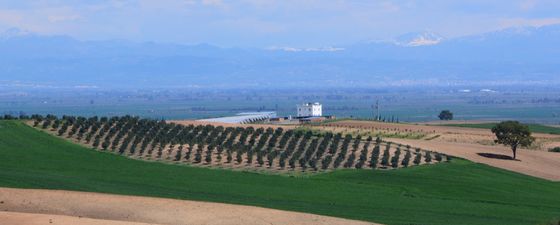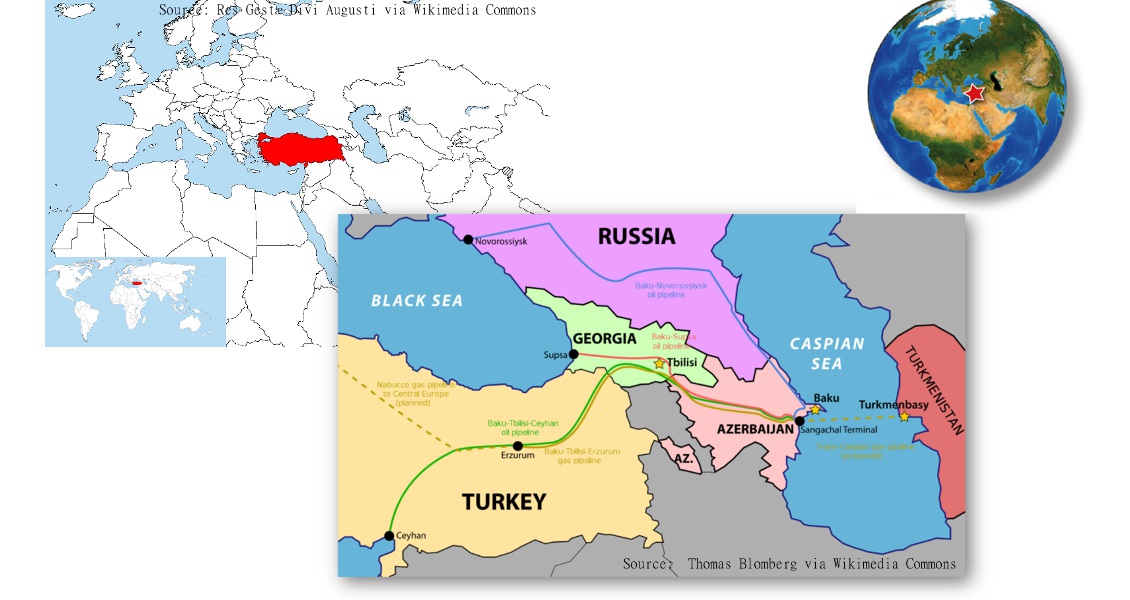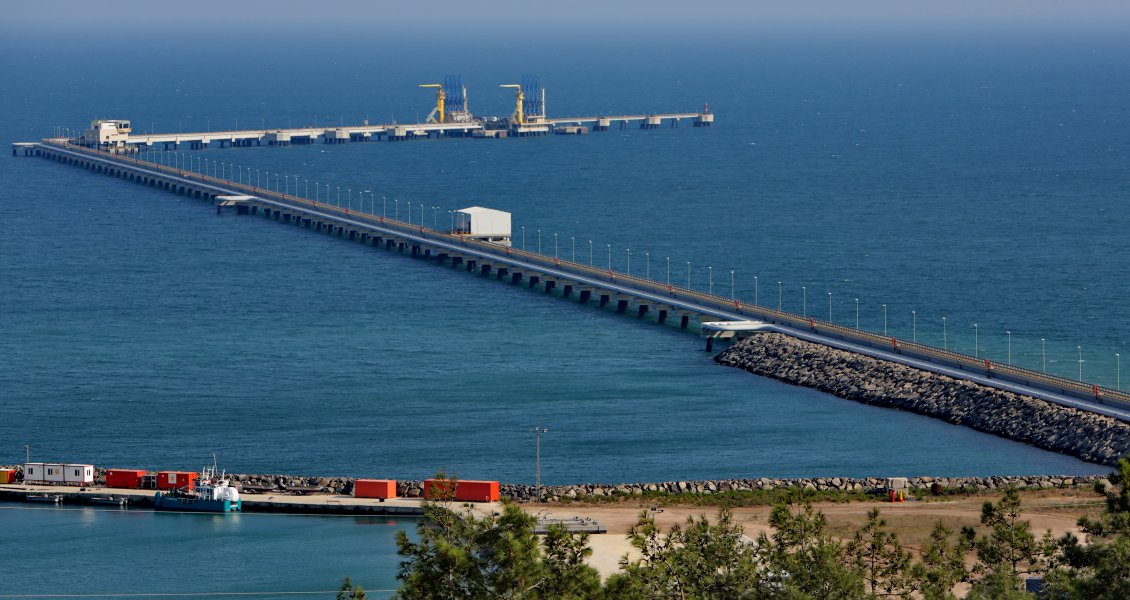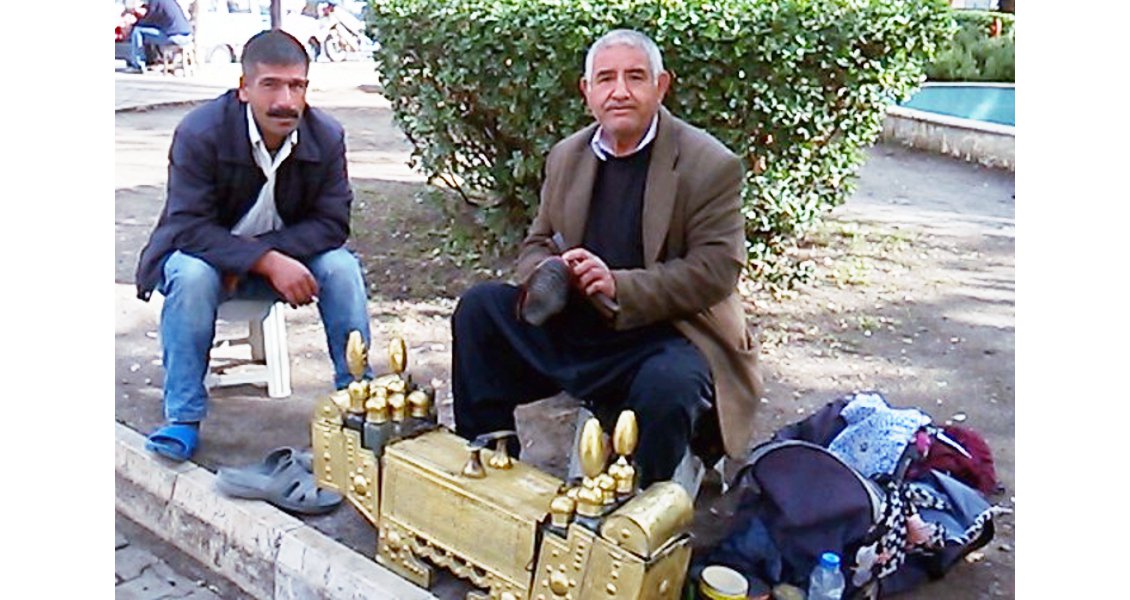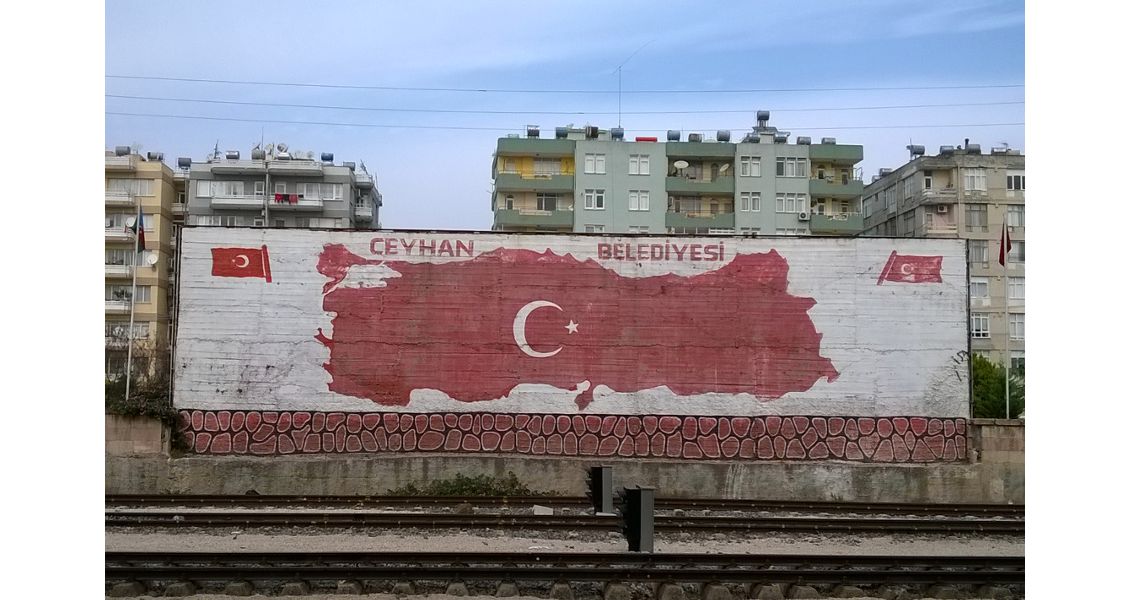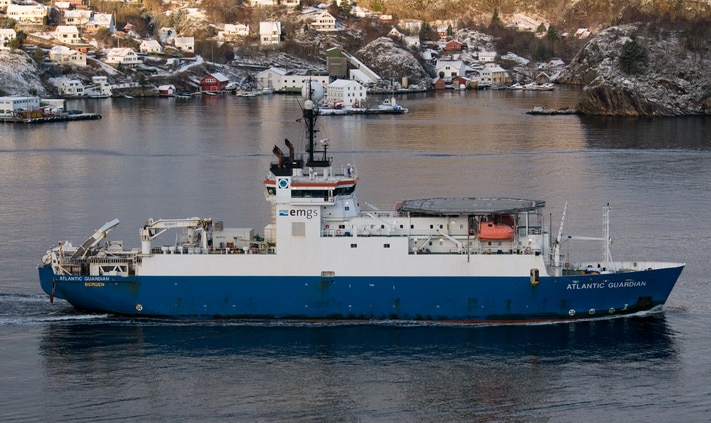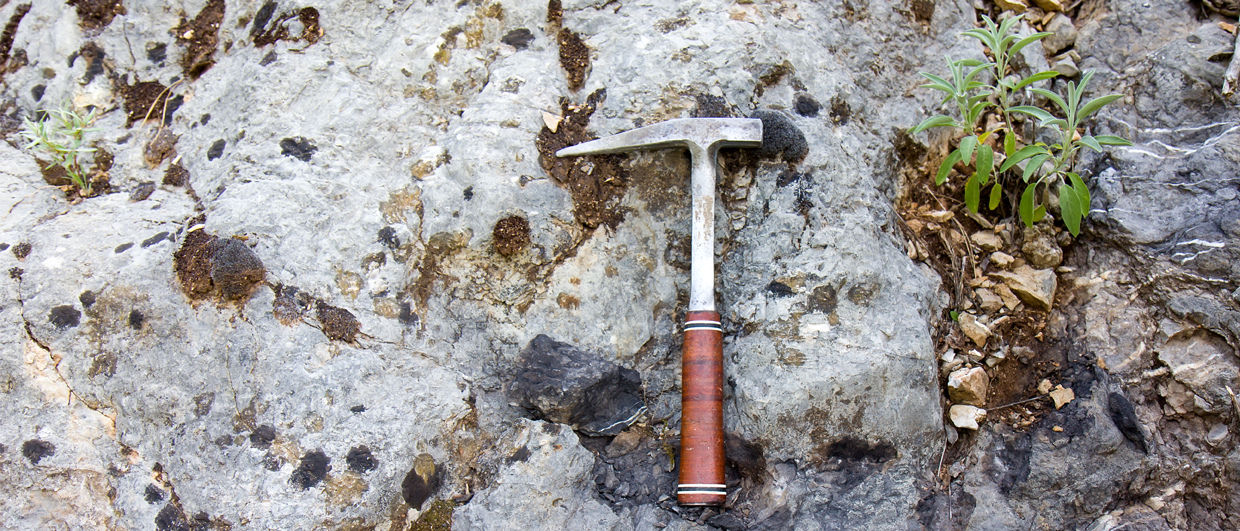It would be hard to overstate the importance of Ceyhan in southern Turkey. At the very far end of the Mediterranean Sea, it provides a vital export terminal for both Caspian and Iraqi oil. By accessing the Mediterranean here, millions of barrels enter the world’s shipping lanes daily and avoid the long and congested route via the Black Sea, Bosphorus and Dardanelles, saving both fuel and time (see Turkey, A Key Transit State in Crisis).
Conflict with Baghdad
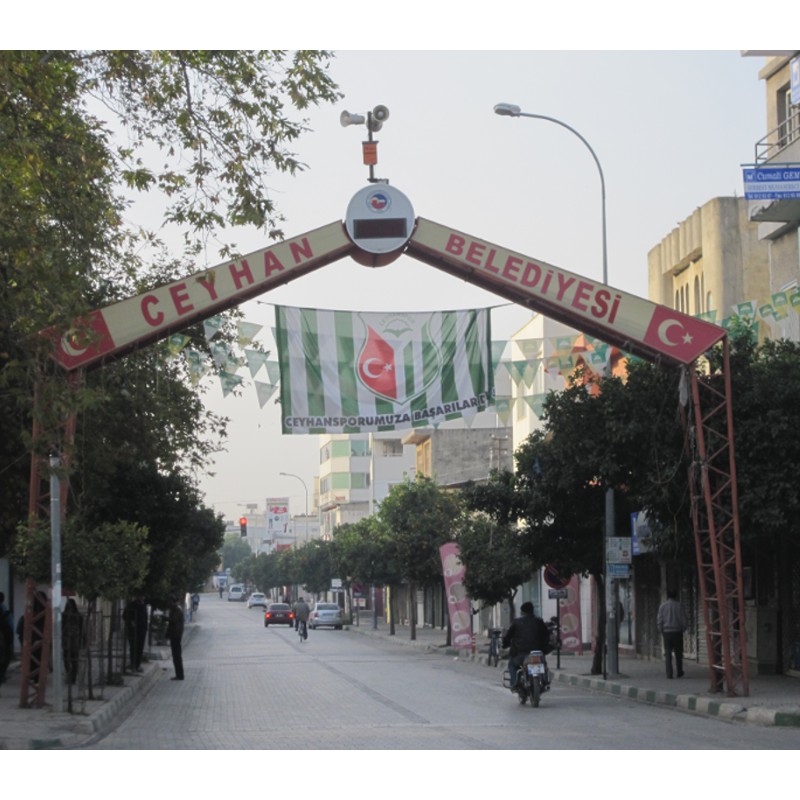 It is possible that some of ISIL’s 80,000 bopd is smuggled out through Ceyhan. But the town remains quiet and unaware of the world’s focus. (Source: Nikki Jones)A network of pipelines brings oil to and from Ceyhan. By far the most important is the Baku-Tbilisi-Ceyhan (BTC) line, first opened in 2006. With a capacity of 1.2 MMbopd and a total volume capacity of 10 MM barrels, its importance to western markets can hardly be over-stated, particularly since it provides an alternative to the Russian network and, by diverting exports that could head south, has helped maintain the isolation of Iran.
It is possible that some of ISIL’s 80,000 bopd is smuggled out through Ceyhan. But the town remains quiet and unaware of the world’s focus. (Source: Nikki Jones)A network of pipelines brings oil to and from Ceyhan. By far the most important is the Baku-Tbilisi-Ceyhan (BTC) line, first opened in 2006. With a capacity of 1.2 MMbopd and a total volume capacity of 10 MM barrels, its importance to western markets can hardly be over-stated, particularly since it provides an alternative to the Russian network and, by diverting exports that could head south, has helped maintain the isolation of Iran.
Similarly, the two-pipeline Kirkuk-Ceyhan route, with a capacity of 1.65 MMbopd, also comes loaded with political significance. Prior to the signing of an agreement with the national government in December 2014, Baghdad was claiming that all Kurdistan oil exports were illegal since they did not have its approval. Throughout this period, approximately 400,000 bopd was shipped into Ceyhan by pipeline and by truck, and the Turks risked Baghdad’s ire by cooperating with the Erbil government to upgrade the pipeline. The new agreement will not bring more oil to Ceyhan, but will increase the usage of the pipeline.
Ceyhan has been the focus of yet more controversy as it has been suggested that some of the estimated 80,000 bopd smuggled out of territory occupied by Islamic State of Iraq and the Levant (ISIL) may be reaching world markets via the port. The possibility exists that ISIL oil is being mixed in with other supplies at Ceyhan’s storage tanks. If so, the trade will be contributing to the group’s estimated income of between one and five million dollars per day.
National Hub
Ceyhan is the hub for two other pipelines that are both vital for the Turkish economy. Just a few kilometres down the coast, the port of Dortyol is linked by pipeline to Turkey’s own Batman province, which produces much of the country’s 300,000 bopd. In addition, the Ceyhan-Kirkkale pipeline transports some of the supplies to one of Turkey’s few refineries outside of Ankara.
One more pipeline has been proposed: the Samsun- Ceyhan line which could connect the Black Sea with the Mediterranean. The current design is for a capacity of 1.5 MMbopd but there appear to have been few developments over the last two years since the lead company, ENI, was blacklisted for its gas exploration in contested Cypriot waters. Ceyhan may have to wait for this addition to its hub status.
Small and Quiet
Given the extraordinary importance of the Ceyhan area, the city itself is a surprise. Unlike Mersin and Adana to the west, Ceyhan has remained small, quiet, charmingly unpretentious – apparently forgotten by central government. It is clean but rather quaint, with its un-tarmacked streets and relative absence of cars. Street life is vibrant, more weighted towards the 1950s than the 21st century. Elderly men sell lottery tickets and bread on the roadside, smoke and chat at their traditional, gleaming shoe-shine boxes, and fill up the cafés, playing backgammon.
There is an air of under-employment, and that developing country feel of a low-wage, under-utilised workforce. This is confirmed by the locals who voice the common complaint that the oil and gas industry has brought few jobs and that the work available has been dangerous and poorly supervised. “They bring in their own workers, from other countries,” says one local.
Interestingly, few locals seem to have any idea – or any real interest – in where the oil is coming from or going to. When I describe their city as ‘important’, they seem surprised. Their perception is that they are the hub of an agricultural community, not a key distribution link for Middle Eastern, Caspian and potentially Russian oil.
Of course, the port facilities are not in Ceyhan itself: the city is situated a few kilometres inland. It is separated from the BOTAS terminal by an area of fertile agriculture, fed by the beautiful Ceyhan river. Travelling out to the coastal town of Yamurtalik I see women and children working in the fields. The locals tell me these are Syrian refugees who, since the war broke out just 50 km away on the other side of the border, are willing to work for half the normal Turkish wage.
“A day’s work would normally get you 40 lire,” says one shop owner, “but now the Syrians have come, and they will work for 20! A packet of cigarettes costs ten lire – so 20 is nothing!”
Expansion Plans?
The Turkish government has said that it plans to develop Ceyhan and, on the periphery of the city, work has begun on a few bleak building sites: as yet, the forests of high-rise apartments that are common in other Turkish cities – and which look to a western eye to be a long-term social disaster – are not yet in place.
Whether Ceyhan can expand its role as an export hub is unclear. The government’s focus at the moment is on construction of the Trans-Anatolian gas pipeline (TANAP), an extension of the South Caucasus Pipeline that tracks the BTC as far as Erzurum in northern Turkey and will eventually transport Caspian gas all the way to Europe and the proposed Trans Adriatic Pipeline (TAP).
The economics of the Samsun-Ceyhan pipeline, which was planned to bring Kazakh and Russian oil down to the Mediterranean, now seem to be in question. Nor has BTC been operating at full capacity as supplies of Kazakh oil from the Tengiz and Kashagan fields have not fulfilled expectations. BP reports that in the first nine months of 2014 only 199 MMb of crude have been transported to Ceyhan via BTC and that only in August 2014 did the pipeline consortium celebrate their two billionth barrel.
A planned new refinery at Yamurtalik (outside of Ceyhan) appears to be on hold, despite Turkey’s almost total dependence on imports of refined products. Possibly new jobs will materialise, but it seems unlikely they will come from the oil and gas sector. Ships continue to arrive empty and leave full. It seems that Ceyhan may remain, for a while, an anomaly – out of government focus, a surprisingly pleasant backwater, but a town with extraordinary, and largely unacknowledged, strategic value.

